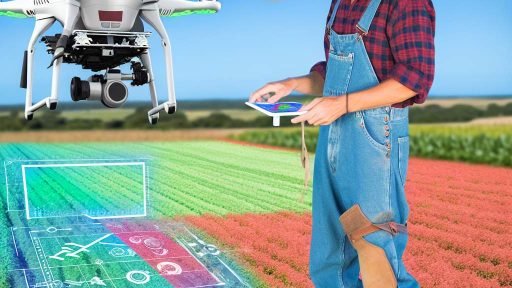Understanding Zoning Laws for Agricultural Land
Definition of Zoning Laws
Zoning laws regulate land use within specific areas.
They ensure orderly development and planning of land resources.
These laws affect agricultural practices and land management.
Importance of Zoning Laws in Agriculture
Zoning laws play a crucial role in agriculture.
They help maintain agricultural land for farming activities.
Effective zoning protects farmers from incompatible land uses.
This protection also aids in sustaining local food production.
Mechanisms of Zoning Laws
Zoning laws utilize specific zoning classifications for land.
These classifications range from residential to agricultural uses.
The primary goal is to guide sustainable land use.
Impact on Agricultural Landowners
Landowners must comply with these zoning regulations.
This compliance can affect property rights and land value.
Moreover, zoning can restrict types of farming practices allowed.
Challenges Posed by Climate Change
Climate change poses new challenges for zoning laws.
Shifts in climate may affect soil and water resources.
Transform Your Agribusiness
Unlock your farm's potential with expert advice tailored to your needs. Get actionable steps that drive real results.
Get StartedThis may necessitate adjustments in zoning regulations.
Need for Adaptation
Adaptation of zoning laws is vital to support agriculture.
New regulations should consider climate resilience strategies.
This proactive approach ensures the sustainability of agricultural lands.
The Impact of Climate Change on Agricultural Zoning: A Global Perspective
Changing Climate Patterns
Climate change significantly alters weather patterns worldwide.
In many regions, droughts, floods, and extreme temperatures become more frequent.
This unpredictability challenges traditional agricultural practices.
Farmers must adapt to these rapid changes to maintain productivity.
Altered Zoning Regulations
As climate conditions shift, zoning laws need reassessment.
Local governments may revise these laws to address emerging agricultural needs.
For instance, areas once suitable for crops may become unsuitable.
This situation requires flexibility and adaptability in zoning policies.
Impact on Crop Selection
Farmers increasingly consider climate change when selecting crops.
More resilient crops may be necessary for changing conditions.
This approach ensures food security amidst environmental challenges.
Ultimately, understanding local climate projections is crucial.
Global Case Studies
Several countries illustrate the impact of climate change on zoning laws.
In the Netherlands, farmers face stricter water management regulations.
This change results from rising sea levels and increased flooding risks.
Similarly, in Australia, drought-resistant crop varieties are now prioritized.
Collaborative Solutions Needed
Climate change significantly influences agricultural zoning.
This impact necessitates a collaborative effort to address challenges.
Proactive planning and policy adjustments will help mitigate risks.
Stakeholders must work together for sustainable agricultural practices.
Showcase Your Farming Business
Publish your professional farming services profile on our blog for a one-time fee of $200 and reach a dedicated audience of farmers and agribusiness owners.
Publish Your ProfileKey Components of Agricultural Zoning Laws
Definition of Agricultural Zoning Laws
Agricultural zoning laws regulate land use for farming activities.
They ensure that agricultural areas remain viable for farming.
Furthermore, these laws protect farmland from encroaching development.
Understanding Zoning Classifications
Zoning classifications determine what activities can occur on the land.
Common classifications include agricultural, residential, and commercial.
Each classification has specific regulations to follow.
Permitted Uses in Agricultural Zones
Agricultural zones allow a variety of activities related to farming.
These can include crop production, livestock raising, and agritourism.
Moreover, some regions permit processing facilities for farm products.
Regulatory Framework
Local governments establish agricultural zoning regulations.
These regulations address land use, building permits, and setbacks.
Additionally, state laws may influence local zoning decisions.
Impact of Climate Change on Zoning Laws
Climate change increasingly affects agricultural practices and regulations.
Farmers must adapt to shifting weather patterns and regulations.
Additionally, zoning laws may evolve to support sustainable practices.
Engaging with Local Zoning Boards
Farmers should engage with local zoning boards regularly.
This involvement helps to voice concerns and propose changes.
Moreover, staying informed ensures compliance with zoning regulations.
Resources for Agricultural Zoning
Many resources are available for farmers to understand zoning laws.
Agricultural extension offices provide guidance and information.
Professional organizations also offer tools and advice on zoning issues.
Delve into the Subject: Understanding Temperature Trends and Their Effect on Farmland
Navigating Local Zoning Ordinances
Understanding Zoning Laws
Zoning laws affect how agricultural land can be used.
These laws vary greatly between different regions.
Farmers must familiarize themselves with local regulations.
This recognition promotes compliance and better land use.
Researching Local Zoning Regulations
The first step is to research local zoning ordinances.
Visit your local government’s website for valuable resources.
Look for zoning maps that outline land-use zones.
This information clarifies what activities are allowed.
Consulting with Local Authorities
Engaging with local zoning authorities is crucial.
Schedule meetings with zoning officers for guidance.
Ask specific questions about farming practices in your area.
This proactive approach helps avoid potential conflicts.
Understanding Agricultural Zones
Agricultural zones often have specific uses permitted.
Common activities include crop production and animal husbandry.
Some zones may restrict certain agricultural practices.
Understanding these nuances enhances compliance.
Filing Applications for Changes
Farmers may need to file applications for changes.
This includes requests for variances or special use permits.
Showcase Your Farming Business
Publish your professional farming services profile on our blog for a one-time fee of $200 and reach a dedicated audience of farmers and agribusiness owners.
Publish Your ProfilePrepare your application thoroughly for better success.
Provide supporting documents, such as land assessments.
Staying Informed About Changes
Zoning laws can change due to various factors.
Stay updated with local government meetings and announcements.
Following local news helps farmers adapt to new regulations.
Engaging with the Community
Building relationships with local community groups is beneficial.
Join farmers’ associations that monitor zoning issues.
Engagement fosters a supportive network for compliance.
Share experiences and learn from other farmers’ challenges.
You Might Also Like: Soil Erosion Control Methods for Sustainable Real Estate Development
Climate-Resilient Agricultural Practices: Integrating Zoning with Sustainable Farming
Overview of Zoning Laws
Zoning laws play a crucial role in agricultural practices.
They dictate land use and development guidelines.
Moreover, zoning helps maintain environmental balance.
Understanding these laws is essential for farmers.
Farmers must navigate regulations to optimize production.
Importance of Climate-Resilient Practices
Climate change presents significant challenges for agriculture.
Extreme weather events threaten crop yields and livestock health.
Implementing climate-resilient practices mitigates these risks.
Such practices enhance soil health and water management.
Farmers can sustain productivity through adaptation strategies.
Integrating Zoning with Sustainable Farming
Effective zoning aligns agricultural land use with sustainability goals.
Designating areas for specific practices benefits the ecosystem.
This approach includes conservation buffers and crop rotations.
Additionally, zoning can promote agroforestry and permaculture.
Collaboration between zoning authorities and farmers is essential.
Examples of Zoning Enhancements
Encouraging community gardens is one effective zoning enhancement.
These gardens increase local food production and biodiversity.
Furthermore, creating protected agricultural zones safeguards resources.
Farmers benefit from reduced urban encroachment.
Incorporating green spaces within urban areas can improve air quality.
Challenges and Solutions
Farmers may face challenges due to restrictive zoning regulations.
Often, these regulations limit innovative practices.
Advocating for flexible zoning can foster sustainable initiatives.
Collaboration with local governments can lead to beneficial reforms.
Farmers should actively participate in community zoning discussions.
Case Studies of Successful Integration
Several regions successfully integrate zoning with agricultural practices.
For example, the Pacific Northwest uses zoning to protect orchards.
This practice has increased local fruit production significantly.
Another example is California’s Sustainable Agriculture program.
It effectively combines conservation efforts with farmland preservation.
Showcase Your Farming Business
Publish your professional farming services profile on our blog for a one-time fee of $200 and reach a dedicated audience of farmers and agribusiness owners.
Publish Your ProfileUncover the Details: Best Irrigation Practices for Reducing Water Waste in Farming

Case Studies: Successful Adaptations of Zoning Laws in Response to Climate Change
Introduction to Zoning Adaptations
Zoning laws are essential in regulating how land can be used.
As climate change intensifies, these regulations need to adapt.
Many regions are now re-evaluating their zoning laws.
This aims to promote sustainable agricultural practices.
Case Study: California’s Agricultural Resilience
California has seen significant changes in its farming regulations.
In response to drought, the state adjusted water usage zoning.
Farmers now receive incentives for sustainable practices.
Such adjustments have resulted in efficient water usage.
Consequently, crops have become more resilient to climate impacts.
Case Study: New York’s Local Food Initiatives
New York has implemented new zoning laws to support local agriculture.
Urban areas now have provisions for community gardens.
Additionally, incentives exist for rooftop farming projects.
This fosters local food production and reduces transportation emissions.
Through these initiatives, communities have strengthened food security.
Case Study: Oregon’s Land Use Planning
Oregon’s zoning laws prioritize agricultural land preservation.
The state has developed policies for urban growth boundaries.
This strategy protects farmland from urban sprawl.
Moreover, it encourages urban agricultural projects.
The result is a harmonious balance between urban development and agriculture.
Collaborative Efforts and Community Involvement
Community engagement plays a vital role in these zoning adaptations.
Many successful adaptations involve collaboration between stakeholders.
This includes farmers, local governments, and environmental organizations.
Such partnerships ensure that adaptations meet ecological and economic needs.
Education initiatives also help raise awareness around sustainable practices.
The Future of Zoning Laws in Agriculture
As climate change continues, further adaptations will be necessary.
Policymakers must remain flexible and responsive to new challenges.
Innovative zoning laws can lead the way for sustainable agriculture.
By learning from successful case studies, other regions can adapt wisely.
The future of agriculture depends on effective zoning strategies.
Find Out More: How AgTech Innovations Shape Rural Real Estate and Land Development
Challenges Faced by Farmers in Understanding Zoning Regulations Amid Climate Change
Complexity of Zoning Regulations
Zoning regulations can be complex and difficult to navigate.
Farmers often struggle to comprehend the intricacies of local laws.
Different regions have distinct zoning requirements for agricultural land.
As a result, farmers may unintentionally violate these regulations.
Frequent Changes Due to Climate Change
Climate change is prompting frequent changes in zoning laws.
These changes can affect land use practices and agricultural viability.
Farmers must stay informed about new developments and requirements.
Failure to adapt can lead to significant operational challenges.
Impact of Local Governance
Local governments often play a crucial role in zoning laws.
Showcase Your Farming Business
Publish your professional farming services profile on our blog for a one-time fee of $200 and reach a dedicated audience of farmers and agribusiness owners.
Publish Your ProfileHowever, their understanding of agricultural needs can vary greatly.
This inconsistency may lead to regulations that do not benefit farmers.
Farmers may feel unheard in the decision-making processes.
The Role of Community Engagement
Community engagement is essential for effective zoning practices.
Farmers should actively participate in local meetings and discussions.
Building relationships with local officials can also improve dialogue.
Such efforts help ensure that agricultural interests are represented.
The Necessity for Education and Resources
Education about zoning laws is crucial for farmers.
Many farmers lack access to resources that explain these complex regulations.
Local agricultural extensions can offer valuable information and support.
Workshops and forums can also enhance understanding among community members.
Future Trends in Agricultural Zoning Laws
Climate Adaptation Strategies
Agricultural zoning laws will increasingly prioritize climate adaptation.
Farmers will require regulations that facilitate sustainable practices.
These strategies must enhance resilience to climate-related disturbances.
Moreover, local governments will implement adaptive zoning guidelines.
Incorporating Technological Advancements
Emerging technologies will reshape agricultural zoning frameworks.
Precision agriculture tools will necessitate updated zoning regulations.
This will support efficient land-use planning and resource management.
Furthermore, data-driven approaches will inform zoning decisions.
Promotion of Sustainable Practices
Future zoning laws will encourage environmentally friendly farming methods.
Authorities will support organic farming and agroecological practices.
There will be an emphasis on reducing chemical inputs in agriculture.
Consequently, this may include incentives for sustainable land management.
Trends in Urban Agriculture
City planning will reflect a rise in urban agricultural initiatives.
Zoning laws will adapt to accommodate urban farms and community gardens.
This approach will address food security in densely populated areas.
Local governments may offer support and funding for these initiatives.
Recommendations for Stakeholders
Local policymakers should engage with farmers during zoning revisions.
This collaboration will ensure that zoning laws are relevant and effective.
Moreover, educational programs can help farmers navigate these changes.
Ultimately, flexibility in zoning regulations will foster innovation.
Stakeholders must advocate for laws that balance productivity and sustainability.




